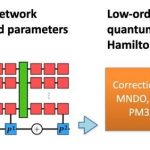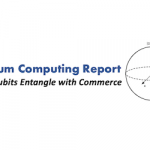Quantum News Briefs October 13: Drone flights to be guided by quantum computers; Quantum Machines to join EU’s European Infrastructure for Rydberg Quantum Computing; Scientists from China, Russia & Thailand combat light-injection attacks to ensure security of quantum communications; & MORE

Quantum News Briefs October 13 opens with “Drone flights to be guided by quantum computers’; Quantum Machines to join EU’s European Infrastructure for Rydberg Quantum Computing; & Scientists from China, Russia & Thailand combat light-injection attacks to ensure security of quantum communications; + MORE
*****(
Drone flights to be guided by quantum computers
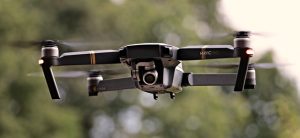
Quantum computers are being tapped to help unmanned aerial vehicles (UAVs) find the safest, most efficient route between destinations explains Berenice Baker of IOT World Today. Quantum News Briefs summarizes her perspectives related to the supply chain, logistics and transportation industries.
Quantum Computing Inc. (QCI) is partnering with the Virginia Innovation Partnership Corporation (VIPC) to determine the best flight trajectories for UAVs using QCI’s Qatalyst software and Quantum Photonic Systems hardware.Flight path calculation is a critical risk-management use case that needs to consider factors including the time, speed and route of the journey while satisfying airspace constraints and minimizing risks related to weather, obstacles and other aircraft.
Any decision made must fulfill legislation laid out by the Federal Aviation Administration.This risk-based decision-making is an example of a real-world complex optimization problem ideally suited to certain types of quantum computing. According to QCI, its entropy quantum computing systems show the potential to quickly identify optimized flight paths that minimize costs and in-flight risks.
QCI and VIPC plan to incorporate sensor and micro-weather data collected by the Virginia Flight Information Exchange, which provides state and local data for UAVs. “VIPC and the Commonwealth of Virginia have demonstrated their technology leadership with this project, focusing on real-world problems involving quantum computing,” said QCI CEO Robert Liscouski.
“QCI is eager to demonstrate that quantum computing offers business solutions for today’s problems, not just in the sense of computing power, but in other applications including LiDAR and quantum networks.” Click to read original article.
*****
Quantum Machines to join EU’s European Infrastructure for Rydberg Quantum Computing (EuRyQa)
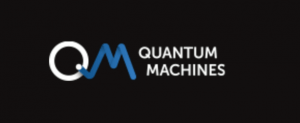
Quantum Machines has announced that it will be a partner on the EuRyQa project. The European Commission has just launched the European Infrastructure for Rydberg Quantum Computing (EuRyQa) project aimed at establishing Rydberg quantum processors as a leading platform for scalable quantum computing in Europe. Quantum News Briefs summarizes from HPCWire announcement.
Assembling eleven partners from seven countries, EuRyQa is funded under the highly competitive Horizon Europe program (HORIZON-CL4-2021-DIGITAL-EMERGING-01-30) with a total budget of almost €5 million over the next three years.
To develop the next generation of fully programmable and scalable quantum computing systems based on ultracold Rydberg atoms, EuRyQa will bring together four complementary European Rydberg platforms. In this way, the consortium aims to provide a unique European solution for Rydberg-based quantum computing, together with the first pan-European benchmarking and standardization of the technology.
To achieve the project’s aims, EuRyQa unites partners from academia at the forefront of ultracold-atom-based quantum technology with industrial partners providing complementary expertise on quantum hardware, classical electronics, firmware, and software. EuRyQa is coordinated by the University of Strasbourg (France) and other partners include the SME PASQAL (France), the University of Stuttgart, the spin-off Qruise GmbH from the Research Centre Jülich, and the consultancy EURICE GmbH (Germany), the University of Amsterdam and the Technical University of Eindhoven (the Netherlands), the research institute Idryma Technologias Kai Erevnas (Greece), Associacao Portuguese Quantum Institute (Portugal), Università degli Studi di Padova (Italy) and Quantum Machines (Israel).
“The EuRyQa project is an important initiative that will help position Europe as a hotbed of innovation in quantum computing,” said Itamar Sivan, co-founder and CEO of Quantum Machines. “With our Quantum Orchestration Platform, quantum computing infrastructure can be built to be highly scalable and compatible with a wide range of quantum technologies. We are proud to partner on such an innovative project that will undoubtedly contribute to moving quantum computing forward — in Europe and the world.” Click here to read original in-depth announcement.
*****
Scientists from China, Russia & Thailand develop solution to combat light-injection attacks & ensure security of quantum communications
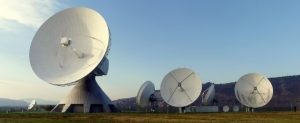 A group of scientists from China, Russia and Thailand have jointly developed a practical solution to combat light-injection attacks during quantum key distribution (QKD) to ensure the security of quantum communications according to China’s Global Times as summarized below by Quantum News Briefs.
A group of scientists from China, Russia and Thailand have jointly developed a practical solution to combat light-injection attacks during quantum key distribution (QKD) to ensure the security of quantum communications according to China’s Global Times as summarized below by Quantum News Briefs.
If QKD is not performed exactly the right way, it becomes vulnerable to light-injection attacks, in which extra bright light is added to the QKD fiber and invisibly penetrates inside the secure stations to carry away bits of the secret key, according to Russia’s National University of Science and Technology (MISIS), an institute that participated in the research. The experiment was described in the PRX Quantum international journal and noted by the American Physical Society.
To address this concern, physicists and security professionals have long been searching for effective countermeasures to prevent these hacks. The scientists proposed one solution involving the addition of a sacrificial cheap device at the exit end of quantum key distribution fiber sources to resist light-injection attacks or break the quantum key transmission before hacking is successful.
The researchers examined off-the-shelf optical isolators and circulators by burning them with a high-power fiber laser, and found that they could serve this function.
Xiang Ligang, a veteran analyst of the telecom industry, explained to the Global Times that under the mode of quantum direct communication, once there is an attack, it will automatically stop, Xiang said, noting that advances in this technology are significant for the transmission of information that requires confidentiality. “This technology mainly addresses security problems, so it is not particularly noticeable for average consumers. However, telecom operators will demand it,” Xiang said, further explaining that in the process of information transmission involving state secrets or other sensitive information, confidentiality measures should be taken to prevent eavesdropping or interception of information. Click here for complete China Times article.
Related: IQT Quantum Cybersecurity Conference & Exhibition in NYC October 25-27
*****
UK researchers boost battery and solar cell efficiency with quantum computers
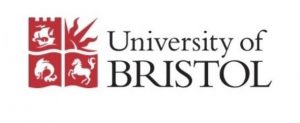 A research team, including experts from the University of Bristol, has developed a cutting-edge algorithm for quantum computers that looks to enhance the efficiency of batteries and solar cells. Innovation News Network reported on this development and is summarized below by Quantum News Briefs.
A research team, including experts from the University of Bristol, has developed a cutting-edge algorithm for quantum computers that looks to enhance the efficiency of batteries and solar cells. Innovation News Network reported on this development and is summarized below by Quantum News Briefs.
Collaborating with quantum start-up, Phasecraft and Google Quantum AI, the researchers’ quantum computing algorithm has revealed properties of electronic systems that could make a range of green technologies even more environmentally friendly.
The breakthrough signifies an essential advancement toward using quantum computers to identify low-energy properties of strongly correlated electronic systems that classical computers cannot solve.
Their novel algorithm is the first able to observe ground-state properties of the Fermi-Hubbard model on a quantum computer – a model that can reveal precious information into electronic and magnetic properties of materials.
*****
Sandra K. Helsel, Ph.D. has been researching and reporting on frontier technologies since 1990. She has her Ph.D. from the University of Arizona.






















